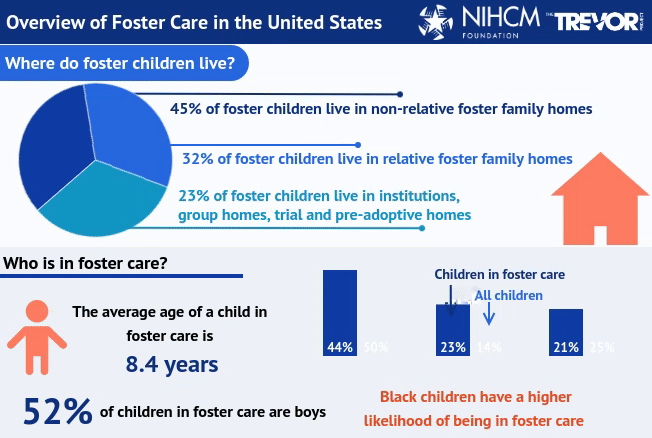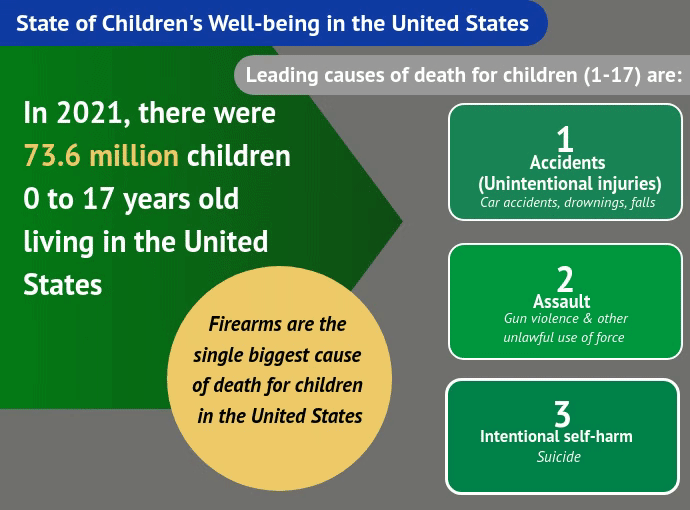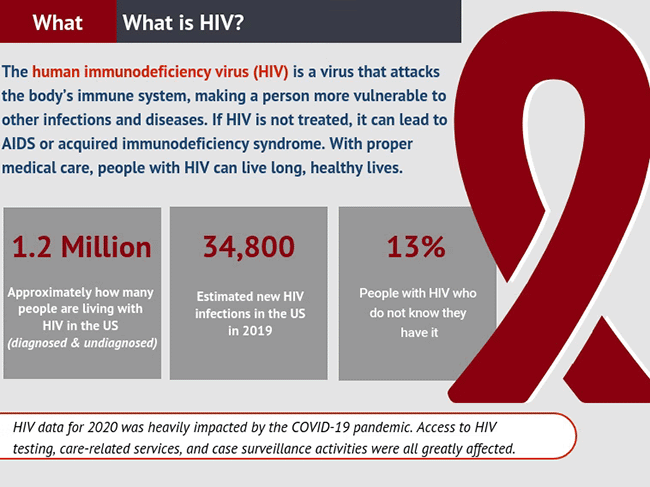
MENTAL HEALTH & WELLNESS RESOURCES
CNN VIDEO: The US has a mental health crisis that could undermine our democracy, US surgeons general say
STATE OF CHILDREN'S HEALTH IN THE UNITED STATES
America’s children are facing multiple challenges to their mental and physical health. Increasing rates of depression, obesity, gun violence, sexual and emotional abuse are among the many factors harming children. Black, Hispanic, Native, American Indian, and LGBTQ+ children also experience disparities in many areas, including access to treatment.
This infographic explores these threats to child health as well as expert recommendations for improving child health and well-being.
Approximately 1.2 million people in the United States are living with HIV, and an estimated 13% of them do not know they are infected. HIV can affect anyone regardless of sexual orientation, race, ethnicity, gender, age, or where they live. In the U.S., Black, Hispanic/Latino, and American Indian and Alaska Native populations have higher rates of new HIV infections and HIV diagnoses, and lower rates of PrEP and ART preventive treatment awareness compared to their White peers. HIV-related stigma is one of the top factors that contributes to poor uptake of prevention tools and treatments. Despite the advancements in HIV prevention and treatment, not everyone is benefiting equally.
This infographic explores strategies to reduce new HIV diagnoses and support stigma reduction in the hopes that it could result in increased initiation of, and adherence to, PrEP or ART to prevent new infections and reduce HIV transmission.
GEORGIA PARENT SUPPORT NETWORK, INC.
Did You Know?
988 Suicide & Crisis Lifeline Georgia
If at any time you or someone else is in danger, DIAL 9-1-1, or if you or someone else is in distress, feel like there may be a risk of suicide, or having a crisis related to mental health, substance use, or a developmental disability DIAL 9-8-8.
What is 9-8-8?
9-8-8 is a direct, national three-digit line that will connect individuals with suicide prevention and mental health crisis resources.
Starting July 16, 2022, 9-8-8 calls, texts and chats in Georgia will be answered by the Georgia Crisis and Access Line (GCAL), 24 hours a day, 7 days a week, 365 days a year.
CALLING 9-8-8: WHAT YOU NEED TO KNOW
How does 9-8-8 work?
Here’s what to expect: Starting July 16, 2022, when calling 9-8-8, callers first hear a greeting message while their call is routed to the local Lifeline network crisis center (based on the caller’s area code).
Read more
988ga.org
When to Use 9-8-8
When 9-8-8 goes live, it will kick off a long period of transformation for our behavioral health system, increasing awareness of resources for individuals in need and, consequently, demand on our system.
Read more
988ga.org
9-8-8 Georgia Rollout Information Center
July 16, 2022, callers will be able to dial 9-8-8 to reach the National Suicide and Crisis Lifeline.
Read more
faq.988ga.org
Submit a request
Please enter your question about the Rollout of 9-8-8 in Georgia. A member of our support staff will respond as soon as possible. If you are in crisis now, stop and dial 9-1-
Read more
faq.988ga.org
What you can do to prepare for the 9-8-8 Rollout:
For Behavioral Health Providers
Begin the conversations with your staff on how you use the existing system and how you will use 9-8-8 in the future. Continue to provide the 10-digit number (1-800-715-4225) to clients and other individuals.
Read more
988ga.org
For Georgia Residents and Visitors
GCAL professionals will provide crisis intervention services by phone, dispatch mobile crisis teams, assist individuals in finding an open crisis or detox bed across Georgia and/or link individuals with urgent appointment services.
Read more
988ga.org
For Medical Providers
Per guidance from SAMHSA, large-scale marketing will not begin until mid-2023 and we need your help reaching at-risk individuals and their loved ones.
Read more
988ga.org
FOSTER CARE, LGBTQ YOUTH &
INCREASED SUICIDE RISK








